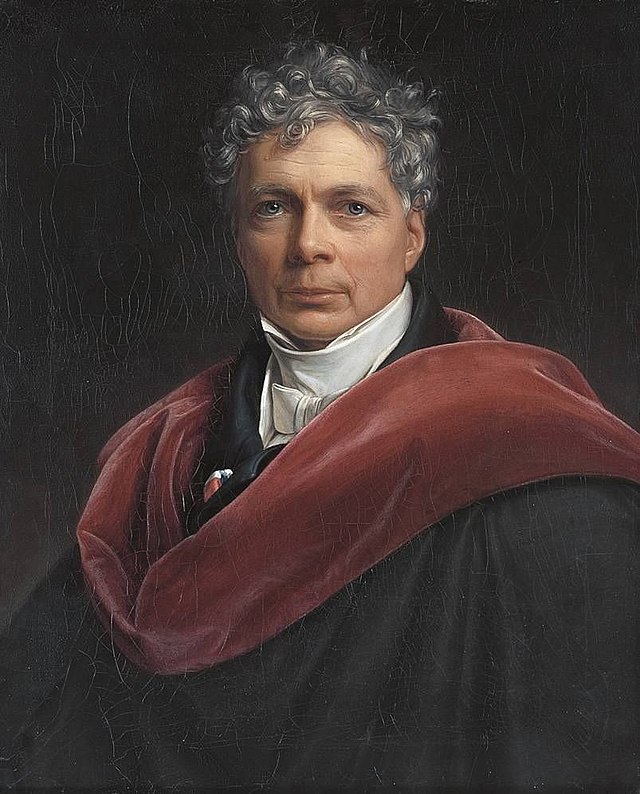Friedrich Wilhelm Joseph Schelling: Difference between revisions - Wikipedia
 Article Images
Article Images
Line 1:
{{Infobox_Philosopher |
<!-- Scroll down to edit this page -->
<!-- Philosopher Category -->
region = Western Philosophers |
era = [[19th century philosophy]] |
color = #B0C4DE |
<!-- Image and Caption -->
[[Image: image_name = Friedrich Wilhelm Joseph von Schelling.png |right]]▼
image_caption = F.W.J. Schelling |
<!-- Information -->
name = Friedrich Wilhelm Joseph Schelling |
birth = [[January 27]], [[1775]], [[Leonberg]], [[Germany]] |
death = [[August 20]], [[1854]], Bad [[Ragatz]], [[Switzerland]] |
school_tradition = [[German Idealism]] |
main_interests = [[Philosophy of Nature]], [[Natural Science]], [[Aesthetics]], [[Religion]], [[Metaphysics]], [[Epistemology]] |
influences = [[Plato]], [[Jakob Boehme|Boehme]], [[Baruch Spinoza|Spinoza]], [[Gottfried Wilhelm Leibniz|Leibniz]], [[Immanuel Kant|Kant]], [[Friedrich Heinrich Jacobi|Jacobi]], [[Johann Gottfried Herder|Herder]], [[Johann Wolfgang von Goethe|Goethe]], [[Friedrich Hölderlin|Hölderlin]], [[Johann Gottlieb Fichte|Fichte]] |
influenced = [[Georg Wilhlem Friedrich Hegel|Hegel]], [[Søren Kierkegaard|Kierkegaard]], [[Martin Heidegger|Heidegger]], [[Charles Peirce|Peirce]] |
}}
''This article is about the the German philosopher Friedrich Wilhelm Joseph von Schelling. For the American economist and [[Nobel Prize]] winner Thomas Crombie Schelling see [[Thomas Schelling]].''
▲[[Image:Friedrich Wilhelm Joseph von Schelling.png|right]]
'''Friedrich Wilhelm Joseph von Schelling''' ([[January 27]], [[1775]] - [[August 20]], [[1854]]) was a [[Germany|German]] [[philosopher]]. Standards histories of philosophy make him the midpoint in the development of [[German Idealism]], situating him between [[Johann Gottlieb Fichte|Fichte]], his mentor prior to [[1800]], and [[Georg Wilhelm Friedrich Hegel|Hegel]], his erstwhile roommate and friend. Interpreting Schelling's philosophy is often difficult because of its ever-changing nature. Some scholars characterize him as a protean thinker who, although brilliant, jumped from one subject to another and lacked the synthesizing power needed to arrive at a complete philosophical system. Others challenge the notion that Schelling's thought is marked by profound breaks, instead arguing that his philosophy always focused on a few common themes, especially human freedom, the absolute, and the relationship between man and nature. Schelling's thought has often been neglected, especially in the English-speaking world. This stems not only from the ascendancy of Hegel, whose mature works portray Schelling as a mere footnote in the development of Idealism, but also from his ''Naturphilosophie'', which positivist scientists have often riduculed for its "silly" analogizing and lack of empirical orientation. In recent years, Schelling scholars have forcefully attacked both of these sources of neglect.